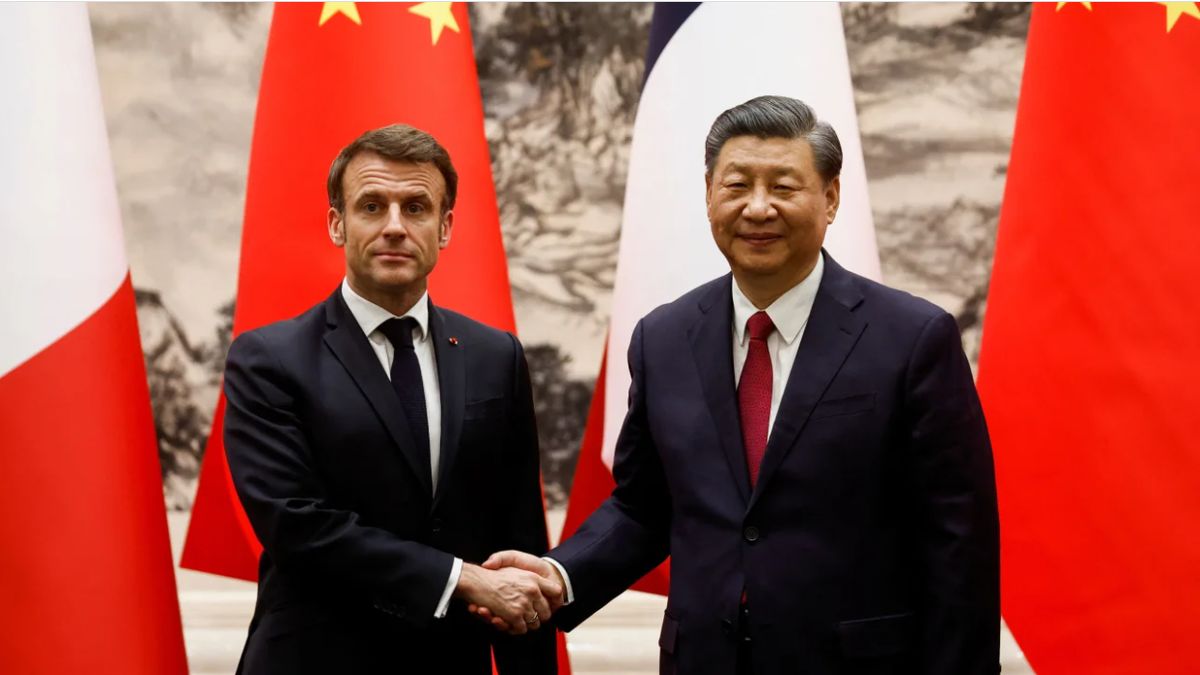Farnaz Eskandari, in an interview with the website of the Strategic Council on Foreign Relations, referred to the remarks of the head of the European Commission that the European Union cannot be separated from China but must reduce the risk and “rebalance” the economic relations and while explaining the primary dependence of Europe on China added: The EU’s trade deficit with China has increased, especially since the COVID-19 pandemic, from 145 billion euro in 2016 to 396 billion euro (432 billion dollars) in 2022.
She added: Imports from China have more than doubled, and exports have increased by 50 percent. China supplies 20 percent of its imports from the European Union, and 9 percent of its exports are destined for Europe.
Saying that Europe is 98 percent dependent on China for the supply of rare earth elements used in wind power generation, hydrogen storage, or batteries, Eskandari added: In many cases, minerals are not mined in China but processed there. Europe plans to process 40 percent of its vital raw materials by 2030.
Referring to the European Union’s dependence on China to supply 80 percent of its solar panels, she noted that Ursula von der Leyen’s attitude towards Russia’s attack on Ukraine is related to her attitude towards China. On March 30, 2023, she gave a speech in Brussels about implementing a coherent security, economic, and trade policy toward China. She stressed that Europe should recognize that the clear objective of the Chinese Communist Party is “systemic change of the international order.” According to von der Leyen, Xi Jinping wants to “make China less dependent on the world and the world more dependent on China.”
According to the analyst of Europe affairs, this view of dependency is critical. Globalization has created various types of dependencies, and for Europeans, especially Germany, the negative side of it became apparent when Putin attacked Ukraine and showed how dependent Europe has become on Russian gas.
Eskandari pointed to the remarks of the European Union foreign policy official who said that they realized the dependencies that were peace-building elements could become weapons against them and added: The European Union foreign policy official believes that Europe should get rid of its dependence on China like its previous dependence on Russia in the age of hydrocarbons.
While pointing to the construction of the Nord Stream pipeline despite repeated warnings from Poland, the Baltic states, Ukraine, and the United States and Putin’s use of it as an essential geostrategic tool, she stated: When Germany stopped the Nord Stream 2 project more than a year ago, Energy prices rose across Europe. Moscow hoped this would weaken European unity vis-à-vis Ukraine, but this did not happen. Governments tried to find alternative sources of Russian energy and accelerated the expansion of renewable energy. However, governments risk becoming similarly dependent on China by focusing on renewable energy.
This analyst of Europe affairs stated: The head of the European Commission believes that Xi wants to create a “powerful countermeasure and deterrence” by intensifying the dependence of international production chains on China. This is especially true for critical raw materials such as lithium or cobalt, sectors such as high-speed rail and renewable energy technology, or emerging technologies – such as quantum computing, robotics, or artificial intelligence – that are important to the economic future and national security.
Saying that such programs should be presented in Europe’s new economic security strategy later this year, she pointed out Europe’s expectation from China to “play a constructive role in the war in Ukraine,” she added: According to Burrell, China has a moral duty to help establish a just peace.
According to Eskandari, the war in Ukraine is a decisive period for Europe, which will determine the future of its relations with China. This period has brought about changes in energy, economic, and security policies. As the president of the European Commission bluntly stated, ‘whether Beijing bolsters or indeed mediates Russia’s war effort, will be a “decisive factor” in EU-China relations for years to come.’
The European affairs analyst added: Europe’s attitude towards China has become more challenging for several years. In 2019, the Commission declared that the EU should treat China as a systematic partner, collaborator, and competitor. This was an intelligent framework for relations at that time, but now it seems that the EU needs to redefine the terms of its engagement with China; as von der Leyen put it, China has entered a period of “reform and opening up” and is moving towards a new era of security and control.
Eskandari reminded: First of all, for the European Union, this means dealing with China as a systemic competitor and adopting policies to reduce the risks caused by it. This does not mean abandoning involvement in climate change or nuclear proliferation issues. It also does not mean economic isolation because those policies are neither realistic nor desirable. The severance of trade relations with Russia also showed that European businesses could not ignore the reliance on the vast Chinese market for sales and profits.
She emphasized: The de-risking approach allows the European Union to act more actively and intelligently. The main question is whether the European Union governments are ready to unite against China’s new strategy.










0 Comments